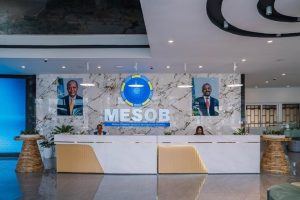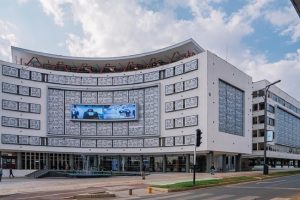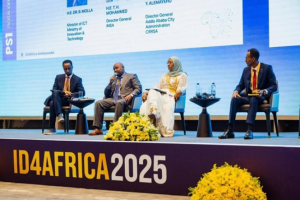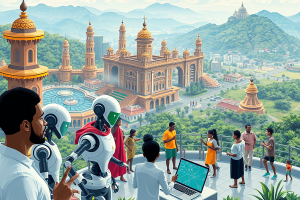STEMpower has exerted its maximum effort to boost Science ,Technology, Engineering and Mathematics (STEM) education to empower women and creating generation of problem –solver youths, so disclosed by STEMpower.
In this regard, Nigist Tilahun has served as the leader of STEMpower’s and Director of Hawassa University STEM Center, in the south of Ethiopia. For more than seven years, made changes by hosting workshops and conferences, in collaboration with area universities and the community, and pushed for changes in the lab curricula.
She took part in an international platform on “Perspectives of Women in Tech Summit” that was held in Warsaw, Poland, in 2016. She also reached out to the “1000 Girls 1000 Futures” program led by the New York Academy of Sciences, an initiative designed to engage young women interested in STEM careers through mentoring and 21st-century skills development.
Azeb Kidane-Mariam, a 17-year-old student who studies at the Hawassa STEM center, mentioned above points. As a result of this, Azeb becoming energetic, inspired and always ready to solve problems in her community. And she hopes to become a Lab technician in the future and contribute much to her community.
When she was 9 years of age, she saw something that grabbed her attention. She witnessed that people were cured from skin tags by applying “dog urine” on the lesion. Azeb was inspired to conduct a research how to prepare a scientifically proven medicine to treat skin lesions. Her passion further progressed at our STEM center, advancing to become her entry at the annual Ethiopian National Science and Engineering Fair Competition.
The national competition is a continuing partnership between STEMpower and the Ethiopian Ministry of Education, for the benefit of thousands of promising engineers and scientists who get the chance to showcase their innovations to the nation and the world, as well.
Youth unemployment has been a huge challenge for Ethiopia. The nation’s Job Creation Commission estimates a 14 million jobs shortfall by 2025, which has prompted a national plan to build a vibrant private sector through support to Medium, Small and Micro Enterprises.
STEMpower has also tried a lot in job creations. For instance, STEMpower has entered a partnership agreement with VISA, the world leader in digital payments, to support the Ethiopian jobs creation initiative by supporting young innovators to establish and grow their technically-oriented small and medium enterprises.
Due to this, the STEMpower-VISA partnership will benefit 3,600 youth in three years, by fostering an entrepreneurial mindset and equipping participants with the skills that bridge the gap between being a STEM innovator and a successful entrepreneur. At the partnership announcement, local banks, like Bank of Abyssinia and Berhan Bank pledged to support the successful implementation of the program, by facilitating credit lines for the innovators and by availing digital and online banking.
STEMpower will use its vast array of Ethiopian STEM Centers and Fab Labs as sites for training, incubation, and acceleration services, while tracking Key Performance Indicators (KPIs) of the job-creating innovators. STEMpower has contributed a lot not only here in Ethiopia but also in South Sudan. After establishing 43 STEM Centers at nearly every Public University in Ethiopia, STEMpower is expanding outwards to nearby African countries. One of those countries is South Sudan.
Last year, STEMpower brought to life the large “beachhead” STEM Center we built at Juba University, in the capital city of South Sudan. Following that nationally-recognized success, we were encouraged to establish four more STEM Centers across South Sudan, with the aim of bolstering the largest academic centers beyond the capital. STEM Center site would be Rumbek University of Science and Technology (“RUST”), located 420 km (260 miles) northwest of Juba.
Always a challenge everywhere in South Sudan is the lack of an electrical power grid in the entire country, few paved roads outside the Juba capital, and scarcity of other infrastructure. To establish the RUST STEM Center, the organization has overcame the challenge of inadequate electric power at RUST campus, by installing modern off-grid solar power capacity across RUST’s three campuses. Then supporting the South Sudan industry by manufacturing locally the custom tables needed for the labs. Next, we successfully imported the lab equipment.
The most challenging phase was transporting the furniture and lab equipment along the unpaved muddy journey from Juba to Rumbek, just before the drenching seasonal rains arrived early.Another challenge was setting up the lab equipment. establishing RUST STEM Center was the first time that STEMpower has set up a STEM Center entirely by a local team in their host country, rather than by our usual experienced team based in Ethiopia. As STEMpower is expanding throughout sub-Saharan Africa, the RUST STEM center is pivoting by training local teams to be experts, especially where it plans multiple STEM Centers in a country.
Mou Deng Riiny was from South Sudan, beneficiary of STEMpower program. Before that, Mou was seven years old when North Sudan invaded his country and his village. In order to find security, Mou fled with his cousins eastwards to Ethiopia, but that route became unsafe, so the little band of refugees walked south to a camp in Kenya. UNICEF estimates that 20,000 boys and young men survived the journey, and became known as the “Lost Boys of South Sudan”. After a few years of living in the camps, Mou was adopted by a loving family in Winchester, Mass, and did very well as a high school student, before attending San Diego University, graduating with an engineering degree.
He subsequently felt to use his engineering skills back in South Sudan, where he founded Sungate Solutions. In addition to his company’s technical expertise, Mou has become STEMpower’s head of our South Sudan STEM Centers, responsible for site selection, and all phases of STEM Center installation, overall operations, solar power, and communication between the South Sudan STEM Centers and STEMpower headquarters in Ethiopia.
Richard Ring Kuach grew up in Juba, South Sudan, and was attracted to our hands-on STEM Center at the University of Juba.Then, he became a volunteer mentor. That experience prepared him to become the South Sudan cluster’s chief technical installation expert, expanding access to lab equipment in STEM Centers across South Sudan. His deep knowledge of sensitive lab equipment and computer configuration came in very handy, during the setup at RUST STEM Center.
STEMpower is amid establishing more STEM Centers across sub-Saharan Africa. As of this writing, three additional countries have already received their enriching lab equipment, pending setup. Your support will help us reach even more nations, enriching the lives of thousands of local aspiring engineers, who, like Mou and Richard, have the great potential to lead their countries towards a brighter future.
STEMpower is an international not for profit, non-governmental organization providing hands-on labs-based STEM education, in fields of Science, Technology, Engineering, and Mathematics, in Ethiopia and near-by Sub-Saharan African, plus supporting those students towards innovation and Technology based small and micro enterprises.
BY MEHARI BEYENE
The Ethiopian Herald June 4/2021




